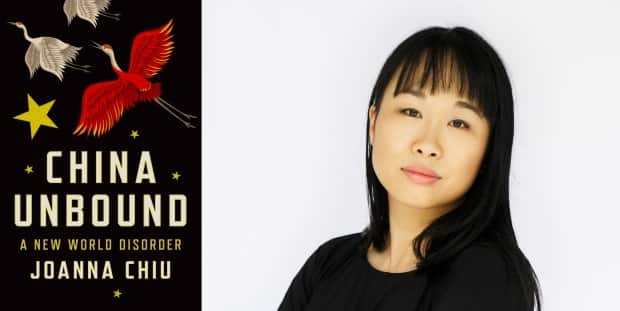Cardy cut New Brunswick's education ties with China before resignation


New Brunswick's former education minister Dominic Cardy says he's proud he was able to cut ties with China's Confucius Institutes before resigning from the Higgs cabinet last fall.
Cardy says he might have quit earlier last year but he wanted to make sure Premier Blaine Higgs wasn't persuaded to extend the program, which saw Chinese government-approved language and culture lessons taught in New Brunswick schools.
"The Chinese were being the way that they often are about these things and weren't willing to go quietly," Cardy said in an interview.
"But now the contract is done, the Communist Party no longer has a place in our schools and I'm just glad to see that slightly embarrassing chapter in our province's educational history is concluded."
Cardy also said when he left, the province was winding down its business relationship with Concord Colleges, private schools that teach the province's curriculum to Chinese students in China.
Phasing out programming
Atlantic Education International, a government-owned company run by a board made up of provincial education officials, sells the province's curriculum to schools in several countries.
AEI chief operating officer Megan Stevenson confirmed in an email the company is "in the process of phasing out programming" at Concord Colleges.
She said that will unfold over the next three years.
Cardy said the AEI arrangement was becoming "increasingly problematic" because New Brunswick content about civics and democracy wasn't being taught at the schools in China.

AEI and the Confucius Institutes were two elements of New Brunswick's attempts to establish links to China when the country was seen as a fast-growing and lucrative market.
Schools in other provinces and countries also signed up for Confucius Institutes.
"The idea was it was helpful and important to have good connections with China, that China was the rising economic superpower, that trade and business opportunities abounded," said Joanna Chiu, a journalist and author of the book China Unbound.
Program in 40 schools by 2018
AEI was established in 1995 to sell the province's curriculum overseas, and that connection to China paved the way for the Confucius Institutes to begin operating in New Brunswick schools in 2007.
By 2018 the program was in 40 schools but was increasingly criticized over concerns it provided a one-dimensional, uncritical look at China.
A 2013 intelligence report by the Canadian Security Intelligence Service warned that Chinese leaders identified the institutes as "an organization for spreading propaganda and building soft power."
In 2019 a U.S. Senate report said the Confucius Institute program "encourages complacency towards China's pervasive, long-term initiatives against both government critics at home and businesses and academic institutions abroad."
No classroom discussion was allowed of China's annexation of Tibet or the 1989 massacre of pro-democracy protesters in Tiananmen Square, for example.
"Definitely the Confucius Institutes were in line with this trend of [China] wanting to have a more friendly face to the world, and also were a way to influence the way China was talked about, in a more benign if not flattering way," said Chiu, whose book examines the country's attempts to influence global politics.

The Confucius Institutes New Brunswick website has not been updated since May 2019, and an official listed as the program's contact person hung up when contacted by CBC News this week.
Cardy, who once worked with agencies promoting democracy abroad and is an outspoken critic of authoritarian regimes, said in early 2019 he wanted the institutes out by the end of the school year.
But the contract had no escape clause and only expired in 2022.
Cardy scrapped the program in kindergarten-to-Grade-8 schools in 2019 and let it continue in a handful of high schools until the end of the 2021-2022 year.
He has publicly accused the Chinese consul general in Montreal, Chen Xueming, of arriving at his office unannounced in 2019 and threatening consequences for New Brunswick's lobster exports to China if he didn't back down.
The consulate denied that in 2021. It did not respond to a request for comment this week.
'Last-ditch effort'
China is New Brunswick's third-largest export market, where it ships large quantities of lobster.
Cardy said Chinese officials mounted "a last-ditch effort to reach out to the premier" last year to extend the agreement.
He said he'd been thinking of quitting over French immersion and the premier's management style as early as last spring.
But he held off until the fall, after the Confucius contract expired, "to make absolutely sure there was no backsliding."
Cardy's criticisms of China in 2019 were met with warnings from the Opposition Liberals that he was endangering trade ties. They demanded Higgs recuse him from dealing with the Confucius Institutes.
"They were obviously foolish, misguided, and straight-up wrong," Cardy said.

Higgs also said at the time he was worried about the potential impact of his minister's comments.
Cardy said that when he quit last October, he wasn't aware of any punitive trade moves by China against New Brunswick exporters.
"Part of that I think was the insatiable Chinese desire for lobster," he said. "So that's good that we make something tasty that they want.
"But the bigger problem was China was suddenly having battles on dozens of fronts that they weren't having when this fight first started."
China's increasingly aggressive foreign policy has attracted growing criticism both in Canada and abroad.
Two Canadians, Michael Spavor and Michael Kovrig, were arrested in China in December 2018 on trumped up charges of espionage.
In a move widely seen as retaliation for the Canadian arrest of a Huawei executive wanted in the United States, the two men were held for more than 1,000 days before being released, an episode that soured Canada-China relations.
On the AEI side, Cardy said when he was minister he asked that the schools in China teaching the New Brunswick curriculum be checked regularly.
When he complained that students were not learning about civics and democracy, there were some improvements at first.
But "it became increasingly clear as China itself slides more and more into authoritarianism that we were not able to insist on those standards being maintained," he said.
Stevenson said AEI will continue to sell its curriculum to China-based international schools that serve the children of foreign nationals posted there.


